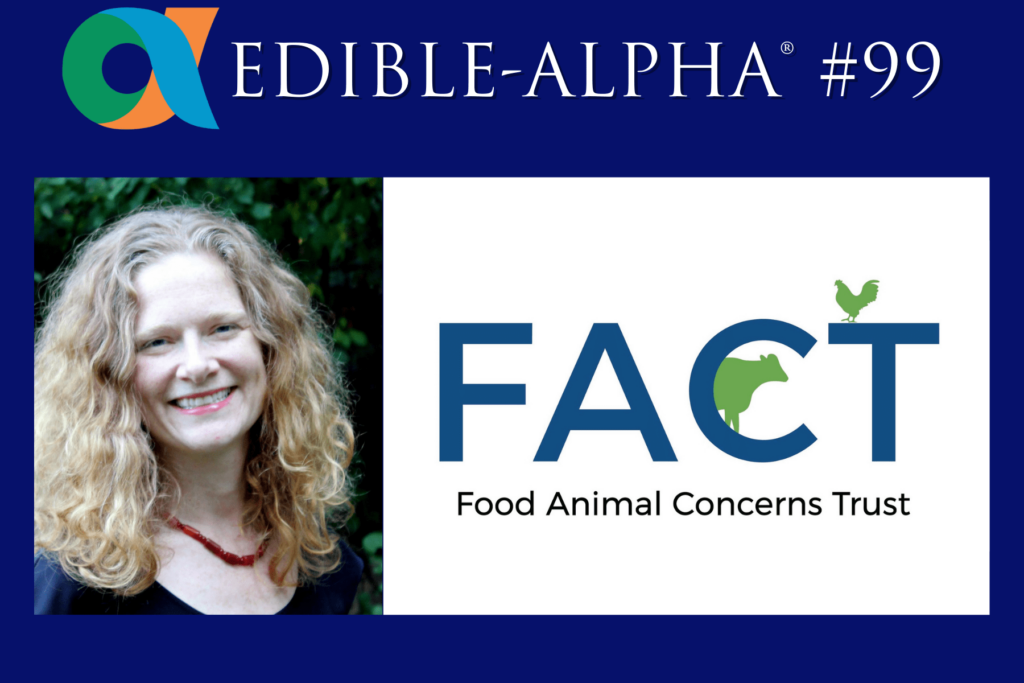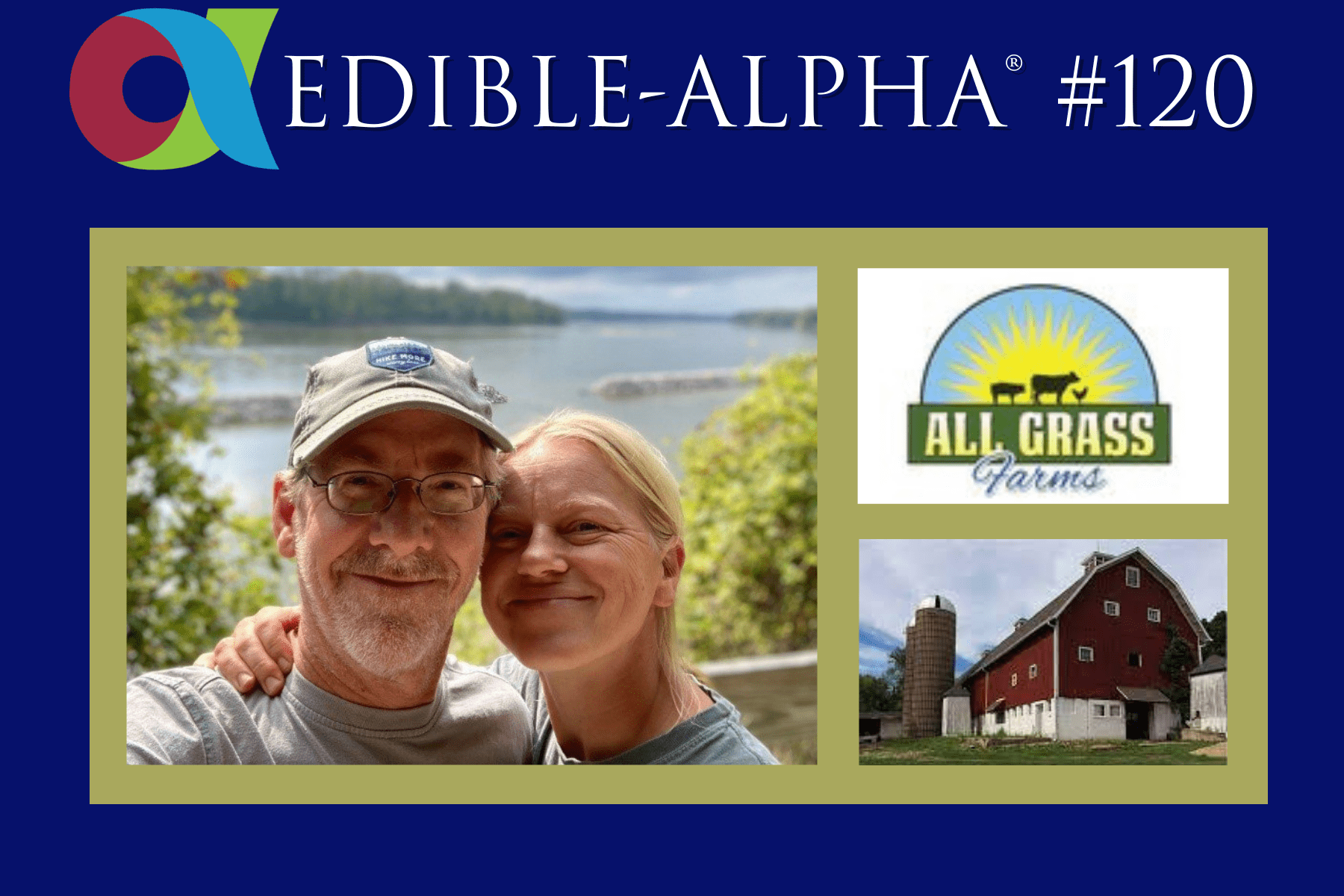Subscribe: Apple Podcasts | Spotify | Amazon Music | iHeartRadio | RSS | More
In Edible-Alpha® podcast #99, FFI farm financial consultant Andy Larson interviews Larissa McKenna, humane farming program director of Food Animal Concerns Trust (FACT). Founded in 1982, this Chicago-based nonprofit holds the vision that all food-producing animals be raised in a healthy and humane manner and that everyone has access to safe and humanely produced food.
FACT offers grants, scholarships, mentorship and webinars for farmers nationwide to give them the skills and resources to raise animals on well-managed pasture-based systems. Though not a certifying agency, FACT helps farmers take steps toward particular production principles. As Larissa explains, these include ensuring that animals, at minimum, get adequate space, access to the outdoors, clean water and air, the opportunity to express natural behaviors, and natural, healthful diets. Also, antibiotics should be used only when disease is present.
As more consumers are learning about the variation in animal production methods, they are increasingly demanding humanely produced products. FACT helps educate shoppers about packaging labels and claims—which ones are meaningful, which are not—to guide their purchasing decisions. Larissa walks through some of the most reliable third-party certifications, such as Certified Animal Welfare Approved, Certified Humane and Animal Welfare Certified and the American Grassfed Association’s standards. Such certifications can aid farmers’ business by boosting brand awareness, opening grant opportunities and, of course, improving animal welfare.
However, certification isn’t always the goal of the farmers Larissa works with—and that’s perfectly OK. FACT’s mission is to help them improve their production methods, and different farmers have different starting points. For example, some are moving from conventional confinement systems while others come to FACT with some humane practices already in play. Regardless of specific circumstances, Larissa lauds the farmers’ innovation, creativity and cost-efficiency in figuring out ways to improve their systems. There is often a strong economic case for making these changes to complement their multiple environmental and animal-welfare benefits.
Lastly, Andy and Larissa discuss FACT’s myriad offerings, including webinars and trainings covering topics such as grazing management and livestock protection, as well as grants for on-farm improvement projects and scholarships for outside education. And in response to farmer demand for more business- and finance-related assistance, FACT is now teaming up with FFI to offer free boot camps and webinars starting this fall. Our mutual goal in providing these valuable opportunities is to help livestock and poultry farmers’ businesses thrive, so learn more and apply today!

